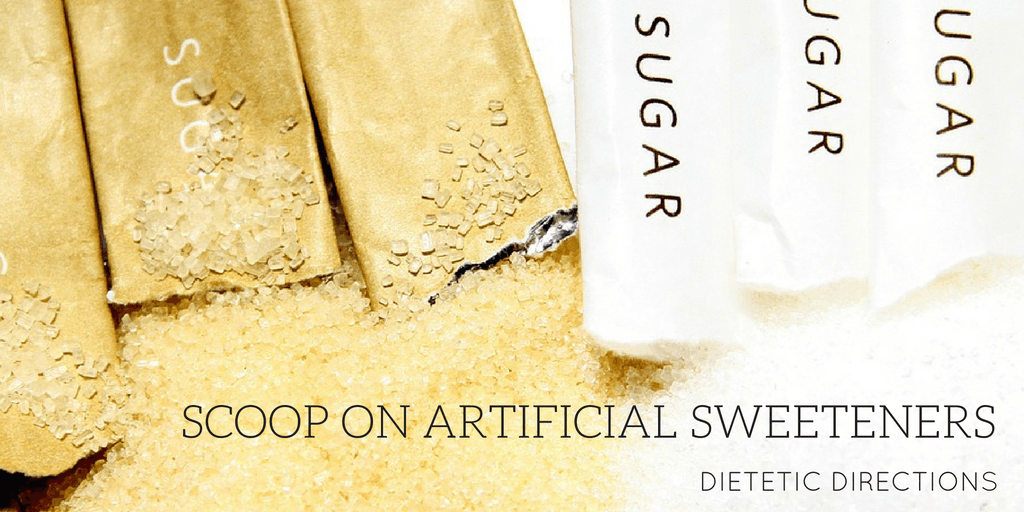
Scoop on Artificial Sweeteners
Canadians are encouraged to limit consumption of added sugar because of the link to heart disease, stroke, diabetes, obesity, high cholesterol, cancer and cavities. But is substituting real sugar for artificial sugar the key to better health?
Artificial sweeteners do not contain calories and are approximately 200-600 times sweeter than regular sugar; this is bonus for those with a sweet tooth who are trying to cut down on excess calories. However, despite the sweetness of artificial sweeteners, their safety has been a cause for concern for decades now. If you are interested in impact of artificial sweeteners on weight management read my past blog.
Laboratory studies have attempted to investigate the safety of artificial sweeteners by exposing rats to very large doses of sweeteners to see if it causes tumours or other health problems. Three independent research studies have found that consumption of aspartame causes cancer in rodents. The Centre for Science in the Public Interest (CSPI) reveals that saccharin in Sweet ‘N Low caused cancer of the bladder, uterus, ovaries and other organs in animal studies. However, CSPI found human studies with saccharin to be inconsistent in the association with cancer risk. As you can see, drawing conclusions from lab studies for how the results will apply to humans is not always clear. We can also study the impact of artificial sweeteners by comparing cancer rates among group of humans regularly exposed to artificial sweeteners versus the general population or compared to a group not exposed to artificial sweeteners. However, these studies are also difficult to interpret or draw conclusions from since there are many outside (non-controlled) factors like smoking, physical activity or overall nutritional quality of diet.
Currently, Health Canada regulates all sweeteners sold and they are only approved when scientific evidence confirms they are safe. Here is a link to the approved sweeteners in Canada.
My Opinion:
As a dietitian, I educate my clients on the current research and encourage them to make a personal choice based on preference, taste and nutritional beliefs when it comes to consuming artificially sweetened products. Without a doubt, it is best to limit the use of artificially sweetened foods and focus on cooking and eating fresh ingredients as much as possible which include fresh fruits, vegetables, whole grains, nuts/seeds, legumes, lean meats, fish and dairy.
It is best to limit the use of artificially sweetened foods and focus eating fresh ingredients. Share on XBottom Line:
Artificial sweeteners use is still met with uncertainty on safety due to limited long term, high quality research trials. More research is still needed before we can fully understand how sweeteners impact our bodies and health. If you consume artificial sweeteners in small amounts there does not appear to be cause for alarm; generally, the amounts people consume appear to be well below the level that may pose harmful effects.
People appear to consume artificial sweeteners below the level that pose harmful effects. Share on XIf you are uncertain how much sugar you should have in your diet read more here.



